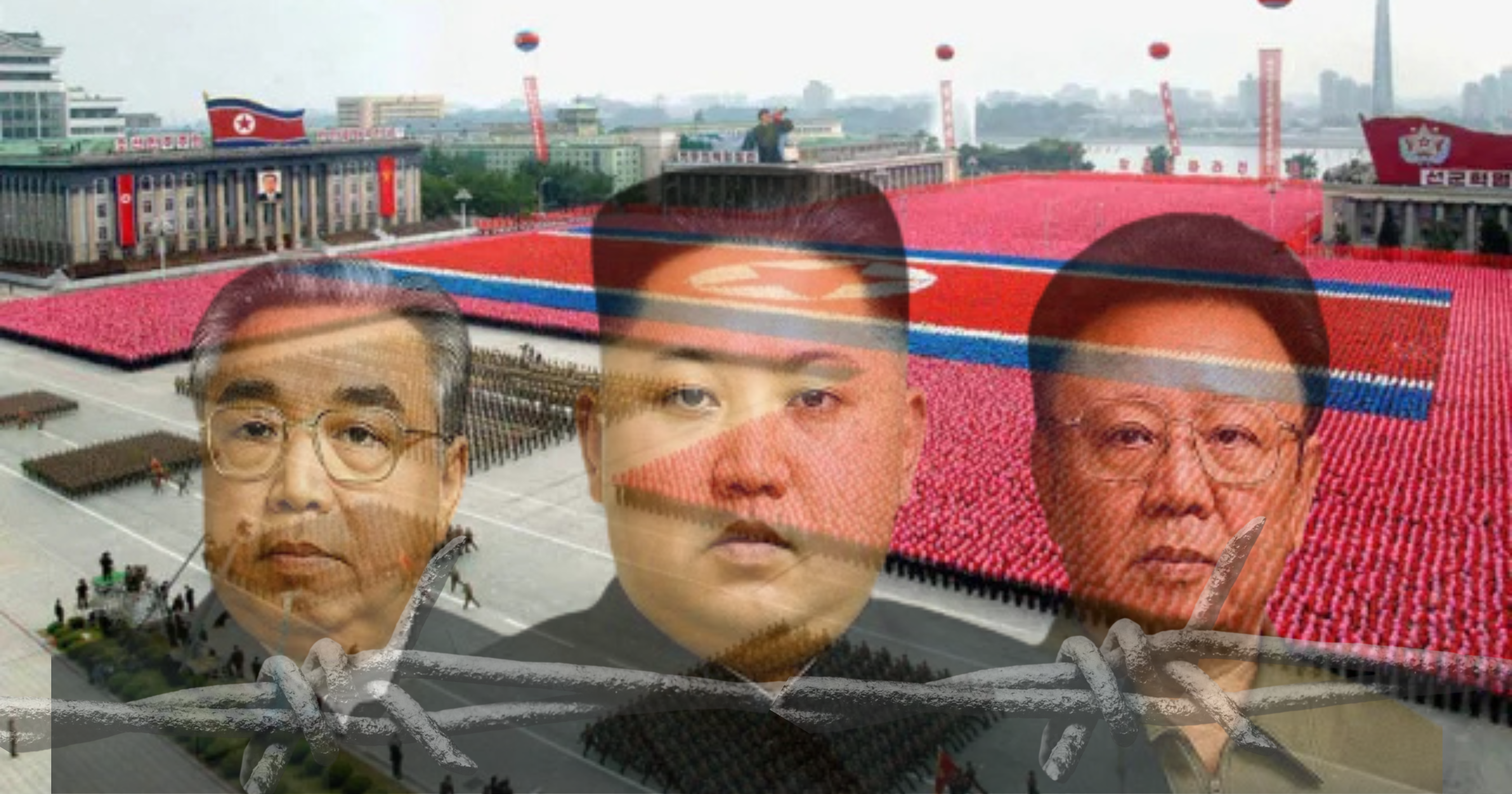Written by Stefan van der Berg
Today, October 10 — the date the Workers’ Party of Korea was founded in 1945 — Pyongyang is staging a spectacle of military precision and ideological fervour that reasserts Kim Jong Un’s dynasty while masking eight decades of silence and suffering. Behind the banners and choreographed displays lies a cumulative history of repression, deepened across three leaders from founding‑era purges and political camps to famine‑era coercion and modern surveillance. Yet beneath the regime’s iron rule, an underground church has not only survived but grown through eighty years of terror, quietly preserving community and steadfast faith.
The Architecture of Repression Under Kim Il‑sung 1945–1994
Kim Il‑sung created the legal and institutional core of the modern North Korean state. Early post‑war purges removed rival factions and consolidated one‑party rule, while the security apparatus and penal system were expanded to exclude dissent from public life. Religious practice and independent organisation were reframed as political threats and social classification systems ensured punishment reached families and generations. What had once been a region with dense Christian networks became governed by an official civil religion centred on Juche, with spiritual commitments recast as acts of subversion.
Institutionalisation and Catastrophe Under Kim Jong‑il 1994–2011
Kim Jong‑il inherited that architecture and hardened the regime’s grip by turning scarcity into an instrument of control. The famine of the 1990s exposed state priorities: rationing, market policing and patronage networks made access to food, medicine and housing conditional on political compliance. Survival strategies moved into the shadows and were often criminalised, entrenching dependency on opaque state systems and deepening intergenerational penalties for perceived disloyalty.
Consolidation and Spectacle Under Kim Jong‑un 2011–Present
Kim Jong‑un has preserved and in places sharpened elite discipline through high‑visibility purges and public displays of punishment. Border closures, pandemic isolation and newer surveillance technologies have narrowed channels for outside information and humanitarian aid. The regime’s choreographed pageantry — military parades and televised removals — performs control for domestic and international audiences, while upgraded monitoring makes ordinary acts of worship, charity or unauthorised communication riskier.
Faith Under Fire: Churches, Secrecy and the Costs of Belief
Once a thriving centre of Christian worship, Pyongyang was known in the early 1900s as “the Jerusalem of the East,” with more than 2,000 churches, a history now suppressed under the regime’s ideological order. Where once parts of the peninsula were known for dense networks of churches, the revolutionary state remade civic life so that belief in anything beyond the regime’s ideology invites suspicion. Christianity is widely treated as subversive; public or private expressions of interest in the Bible are policed as political acts.
Believers face extreme consequences: arrest, transfer to prisons and labour camps, severe mistreatment and family punishment designed to encourage denunciation. The state’s encouragement of informant behaviours — taught from childhood in some places — means even familial trust is compromised. Access to scripture is heavily restricted, so believers rely on covert channels to receive teaching and encouragement. Smuggled materials, clandestine broadcasts and memorisation of passages are principal methods of preserving religious knowledge where possession of a Bible is life‑threatening. Analysts and faith groups estimate that tens of thousands have been detained in prisons and labour camps, while many more live under constant threat of discovery. Despite this, covert communities of faith continue to meet, care for one another and quietly pass on beliefs.
Voices and Human Impact
Survivor accounts and witness testimony show how institutional mechanics shape daily life. Entire families have been expelled from towns after a single arrest; children denied schooling; market activity criminalised; and irregular rations or sudden disappearances dictate household decisions. For many believers, scripture survives through memorisation and smuggled fragments rather than possession, a practice that preserves faith while minimising risk.
The Cumulative Pattern
Persecution in North Korea is cumulative rather than episodic. Kim Il‑sung built a system that criminalised dissent and subordinated spiritual life to state ideology. Kim Jong‑il converted scarcity into governance, embedding patronage and surveillance into survival. Kim Jong‑un has updated the regime’s capacity to intimidate and monitor, closing escape routes and curtailing outside assistance. Today, social classification, legal penalties, economic scarcity and technological monitoring operate together to make ordinary choices fraught and survival itself subject to regime calculation.
Conclusion
The Workers’ Party anniversary is a theatrical assertion of legitimacy, but the performance conceals 80 years of evolving repression. Tracing how purges, famine policy and modern surveillance have been layered over one another reveals a regime that has finely tuned instruments of control across generations. Reporting that links institutional mechanics to individual stories best shows how 80 years of policy and power produced the present human cost, even as hidden communities of faith continue to sustain one another and keep belief alive.
Prayer Points
Pray for courage for believers who live under constant threat, that they may find safe ways to meet, encourage one another and sustain their faith.
Pray for protection for those who secretly share scripture and discipleship resources, that their work and lives would be shielded from harm.
Pray for families affected by arrest and displacement, that children and relatives punished by association would find provision and restoration.
Pray for those in detention enduring harsh conditions, that they would receive strength, dignity and, where possible, relief.
Pray for channels of hope — safe means of communication, scripture access and humanitarian help — to reach isolated communities.
Pray for wisdom for journalists, advocates and humanitarian actors documenting abuses, that they would report responsibly and amplify the voices of survivors without exposing them to further risk.

